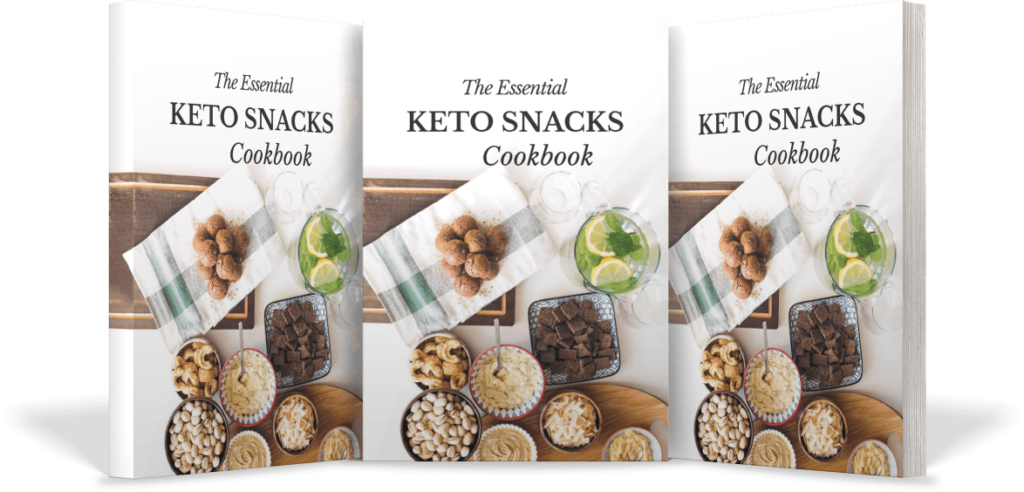The Best Ultimate Plateau-Buster Plateau of Productivity - For Your Healthy Living Hey there, fabulous…
As an Amazon Associate I earn from qualifying purchases.
The Best Keto Must Have Recipes
Are you ready to embark on a delicious and healthy journey into keto cuisine?
We’ve got you covered! In this cookbook, we will share the absolute must-have recipes that will not only tantalize your taste buds but also help you achieve your health and fitness goals.
Say goodbye to bland dieting and hello to the flavorsome, fat-burning wonders of the keto diet.
Try the Snacks Cookbook

The Essential Keto Cookbook (Physical) - Free + Shipping
How About Delicious Lasagna?
Cheesy lasagna oozes with flavor and spices… Basil. Parsley. Fennel. Oregano. Thyme. Garlic. Fresh tomatoes. Two types of meat. So delicious!
These are the very same foods that you thought you'd have to give up forever…
For instance, every delicious, ginger spice cookie is 100% free from inflammatory ingredients.
And if you have a sweet tooth, they’re sweet enough to satisfy any sugar craving…
The best part – of course – is that they contain almost no carbs. And these cookies taste so good, you’ll never be tempted to cheat with non-keto foods.
Most importantly, these recipes are full of flavorful spices and have been tested in my own kitchen.
Most Importantly, All The 106 Fat-Burning Recipes Inside This Cookbook Are Not Just Healthy… But Simple, Easy, And Quick…
Introduction
Before we dive into the culinary delights, let’s briefly introduce the diet for the uninitiated.
The ketogenic diet is a low-carb, high-fat dietary regimen that has gained immense popularity for its ability to induce ketosis, a metabolic state in which your body burns fat for fuel instead of carbohydrates.
This process promotes weight loss and offers numerous health benefits.
What are the benefits?
The ketogenic diet, offers a variety of benefits, making it a popular choice for many individuals. Here are some of the key advantages of adopting this new lifestyle:
Weight Loss: One of the primary reasons people turn to the diet is for weight loss. By drastically reducing carbohydrate intake and increasing the consumption of healthy fats, the body enters a state of ketosis, where it burns stored fat for energy. This can lead to significant and sustainable weight loss.
- Improved Blood Sugar Control: The diet has shown promise in helping individuals with type 2 diabetes better manage their blood sugar levels. Minimizing carb intake can lead to reduced insulin resistance and lower blood sugar levels.
- Enhanced Mental Clarity: Many followers report improved mental clarity and cognitive function. Ketones, the by product of fat metabolism in ketosis, can provide the brain with a stable and efficient energy source.
- Increased Energy Levels: As the body adapts to using fat for fuel, people often experience increased and more sustained energy levels. Say goodbye to energy crashes caused by blood sugar spikes and crashes.
- Appetite Suppression: High-fat and protein-rich foods tend to be more satiating, helping to reduce overall calorie consumption. This can lead to a reduced appetite and easier portion control.
- Improved Lipid Profile: Some studies suggest that the diet can lead to favorable changes in cholesterol levels, such as increased HDL (good) cholesterol and decreased triglycerides.
- Better Skin Health: The diet may help improve skin conditions like acne due to reduced sugar and processed food consumption, known to exacerbate skin issues.
- Epilepsy Management: Originally developed to treat epilepsy, the keto diet is still therapeutic for drug-resistant epileptic seizures, especially in children.
- Potential Cancer Therapy: Some emerging research suggests that the diet may have a role in slowing the progression of certain types of cancer, as cancer cells typically rely on glucose for energy.
- Polycystic Ovary Syndrome (PCOS) Management: For women with PCOS, the diet can help regulate hormones, reduce insulin resistance, and manage weight.
- Inflammatory Conditions: Some people with autoimmune and inflammatory conditions report relief of symptoms while on the ketosis diet, likely due to its anti-inflammatory effect.
It’s important to note that while the Keto diet offers numerous benefits, it may not be suitable for everyone.
Individuals should consult with a healthcare professional or a registered dietitian before embarking on the journey, especially if they have preexisting health conditions or concerns.
Additionally, maintaining a balanced and nutrient-rich diet is essential to ensure long-term success and overall health.
FAQ
Keto, short for ketogenic, is a low-carbohydrate, high-fat diet that has become popular for weight loss and potential health benefits. The basic rules for a keto diet are as follows:
- High Fat: The majority of your daily calorie intake should come from healthy fats, typically making up about 70-75% of your total daily calories.
- Low Carbohydrates: You should limit your daily carbohydrate intake to a very low level, usually around 5-10% of your total daily calories. This typically means consuming fewer than 50 grams of net carbohydrates per day.
- Moderate Protein: Protein intake should be moderate, making up about 15-20% of your total daily calories.
- Ketosis: The primary goal of this diet is to enter a state of ketosis, where your body switches from using carbohydrates as its primary fuel source to using fat for energy. This is achieved by significantly reducing carb intake.
- Healthy Fats: Avocado, olive oil, coconut oil, nuts, seeds, and fatty fish like salmon.
- Protein Sources: Meat, poultry, fish, eggs, and dairy products (in moderation).
- Low-Carb Vegetables: Leafy greens, broccoli, cauliflower, zucchini, and bell peppers.
- Dairy: Full-fat dairy products like cheese, butter, and heavy cream (in moderation).
- Nuts and Seeds: Almonds, walnuts, chia seeds, and flaxseeds.
- Berries: In moderation, as they are lower in carbs compared to other fruits.
- Low-Carb Sweeteners: Stevia, erythritol, and monk fruit.
- Sugary Foods: This includes sugar-sweetened beverages, candy, and desserts.
- Grains: Bread, pasta, rice, and cereal are high in carbohydrates.
- Starchy Vegetables: Potatoes, corn, and carrots are examples of high-carb vegetables to avoid.
- Legumes: Beans, lentils, and peas are carb-rich and best avoided.
- Fruits: Most fruits are high in carbs, so they should be consumed in moderation.
- Processed Foods: Many processed foods contain hidden sugars and carbohydrates.
- Alcohol: Alcoholic beverages are typically high in carbs and can interfere with ketosis.
Ketosis is a metabolic state where your body burns fat for energy due to the lack of carbohydrates. This process produces molecules called ketones, which can be used as an alternative fuel source. The ketogenic diet is designed to encourage the body to reach and maintain this state, which is believed to help with weight loss, improved energy levels, and potentially other health benefits, though it may not be suitable for everyone, so it’s essential to consult a healthcare professional before starting any new diet plan.
Amazon and the Amazon logo are trademarks of Amazon.com, Inc or it's affiliates.






